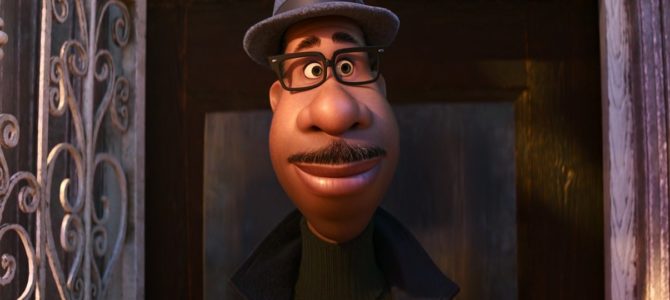
The unique problem for a company with a track record of brilliance is that anything short of similar magnificence is often viewed as a disappointment. Enter “Soul,” the latest offering from the creative minds at Pixar, now streaming on Disney Plus.
Pixar’s 23rd feature-length animated film follows the quest of Joe Gardner (voiced by Jamie Foxx), a middle-school band teacher looking to reunite his soul with his body, and “22” (voice by Tina Fey), a soul who has spent millennia in the “Great Before” lacking the “spark” required for her to begin life on Earth.
Helmed by talented director Pete Docter, “Soul” is a sometimes sublime, somewhat flawed entry into the noble Pixar canon. While a few sequences deserve a place in the upper echelon of the studio’s output, the film often struggles to find a consistent and coherent groove.
Throughout the film’s tidy 1 hour 40 minute runtime, Docter tosses around a number of imaginative set-pieces and attempts to delve into several worthy philosophical questions, some of which work more than others.
Another Leap in Animation
The animation concepts and sequences Docter and his team created for “the zone” — a space between the physical and spiritual — are among the most effective creative aspects of the film. Gorgeous colors, textures, and scoring perfectly capture the sense of being lost in the bliss of doing what we love best.
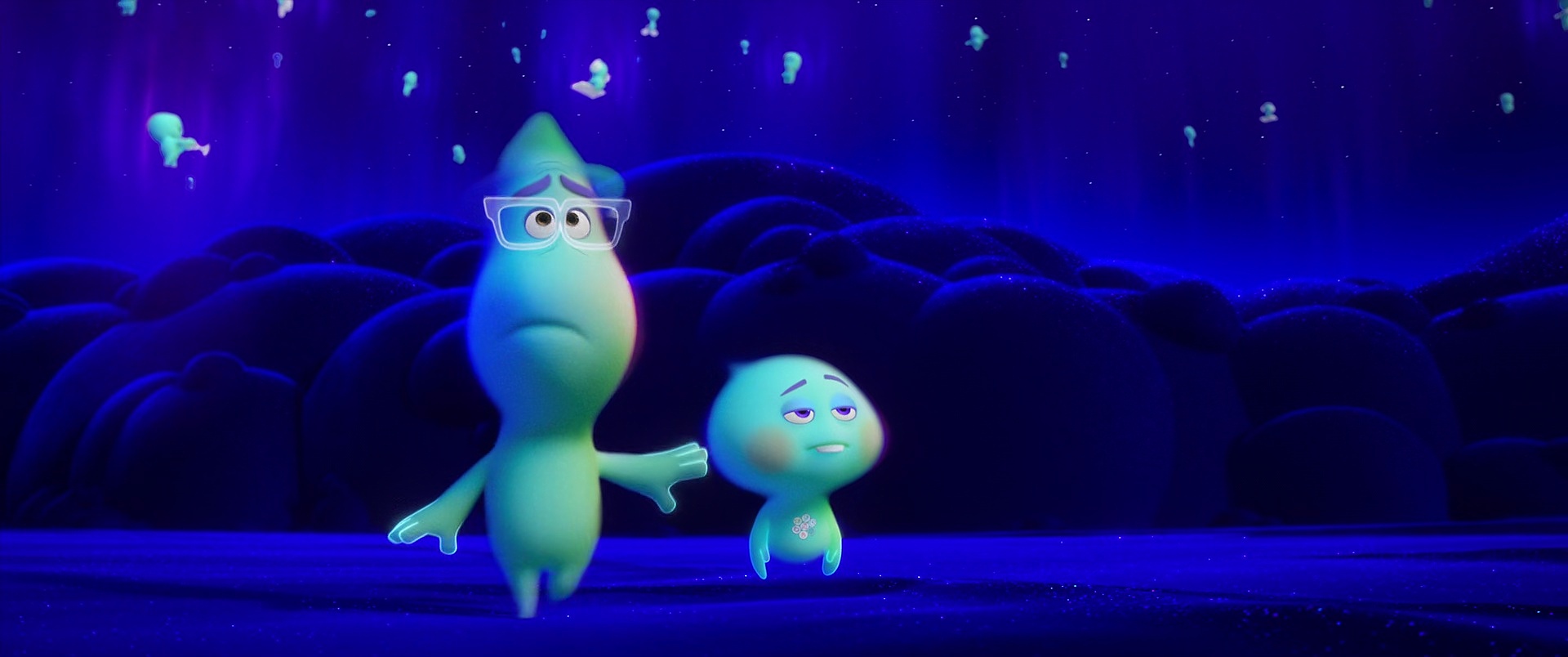
The hopeless, dreary void that exists below “the zone” is a similarly interesting counterpoint — souls that linger in one’s deepest passions for too long are consumed by them, turning them into burdened, lumbering, and monstrous creatures, roving aimlessly across a deep indigo sea.
It’s an interesting visual representation of how the fiery emotions that allow entrance to “the zone” can lead to potentially ruinous consequences if such passions become so all-encompassing, inadvertently smothering much the joy out of the rest of your life. Indeed, as revealed in the film’s trailer, Joe literally dies from careless actions he takes while too busy reveling in the fact he’s finally getting his chance at a big break.
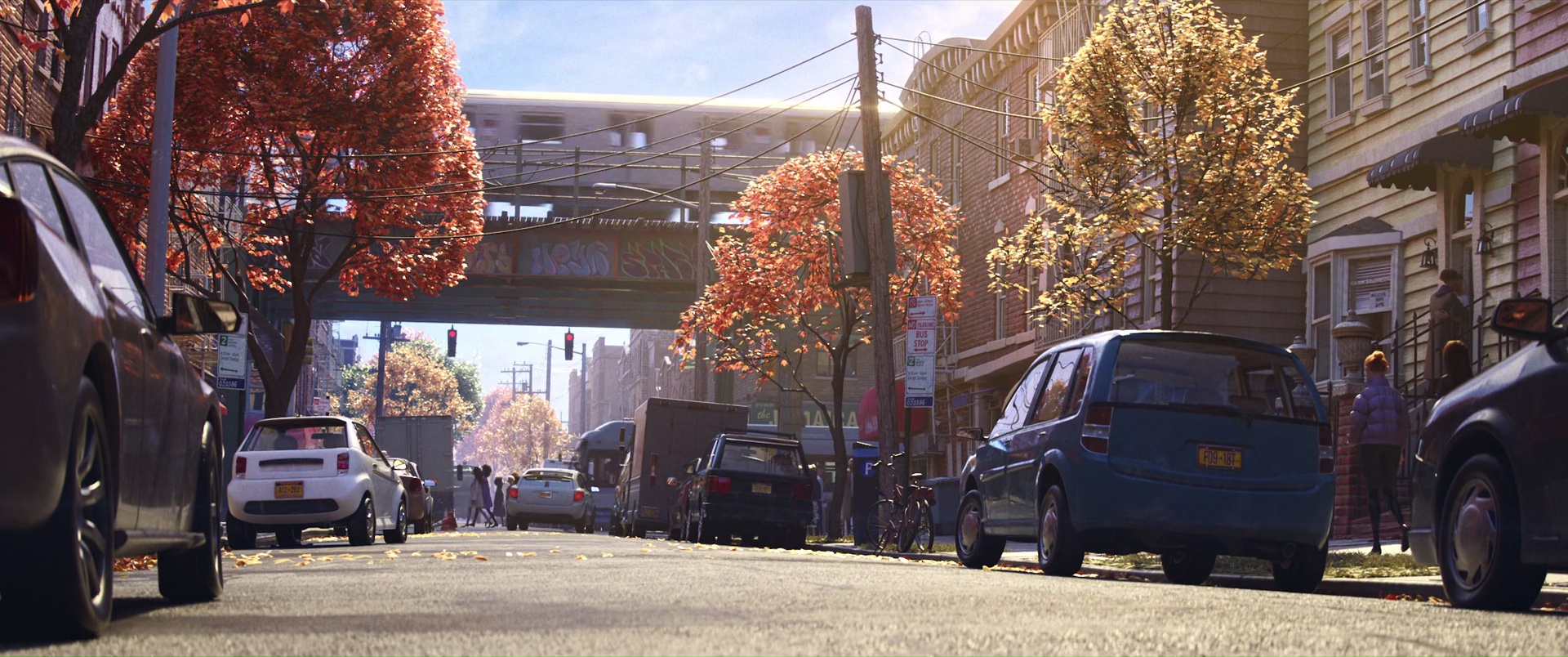
Without a doubt, the animation of “Soul” is an achievement unto itself. Pixar’s recent leaps forward in depth-of-field, particle effects, lighting, shadows, and shading were shown off near the end of 2019’s “Toy Story 4” during the film’s carnival scenes. With “Soul,” the studio’s animators continue to reach greater heights. Both daytime and nighttime shots of New York City, reflections on shining instruments, and jazz club mood-lighting are beautifully rendered.
An Exceptional Score
Appropriate for a film centered on a music teacher and part-time gig performer, a standout element of “Soul” is its score. Jazz — and its related concepts of improvisation, “feeling” one’s instrument, and “getting lost” in the music — plays a large thematic role in the film.
Smartly, Docter and his team handed off the jazz music sections to Jon Batiste, bandleader of Staying Human as well as musical director of “The Late Show with Stephen Colbert” and The Atlantic. Batiste’s work is crackling, invigorating, and evocative, marking a continued “winning streak” for music in jazz-focused films following such hits as “La La Land” and “Whiplash.”
The non-jazz portions of “Soul,” however, flow from the combined pens of Nine Inch Nails members Trent Reznor and Atticus Ross. After winning an Academy Award in 2010 for their effective, minimalist score for “The Social Network,” the pair have composed exceptional music for numerous endeavors including “The Girl with the Dragon Tattoo” and HBO’s “Watchmen” miniseries.

“Soul” represents their most tender and traditional offering yet. And, while there are some musical excerpts that bear resemblance to the driving, techno beats delivered in “Watchmen,” Reznor and Ross seamlessly fit their talents to the Pixar scoring mold carved out by the previous work of Michael Giacchino and Thomas Newman in particular. Highlights among their captivating work for the film include the cues “Flashback,” “Earthbound,” “Thank You,” and “Enjoy Every Minute.”
The musical pinnacle of “Soul” is, without question, the nearly four-minute cue, “Epiphany.” This is Reznor and Ross at their finest, rivaling the cue “Lincoln Tunnel,” written for “Watchmen” last year.
Giving Characters their Due
There are some jokes that land — a slam-dunk dig at the Knicks would have definitely solicited open guffaws in an actual theater — and some humorous cut-scenes to brief conversations with the souls of famous people, but the film lacks the overall comedic punch of greater Pixar fare. Yet what keeps “Soul” from the true magnanimity we expect from the creme de la creme of Pixar is a combination of flawed pacing and, at times, scatter-brained writing.
Contrasted with the fleshed-out worlds of Docter’s “Monsters, Inc.” and “Inside Out,” the world-building and lore of “Soul” are critically lacking. What souls can truly experience, what are the actual requirements for completing an “Earth pass,” and why certain objects (like particular leaves) can transfer between worlds aren’t fully explained.
Even more detrimental to the film is the speed with which Docter throws the viewer into such largely mysterious and unexplained realms. We’re shown less than nine minutes of Joe Gardner’s life before he falls down a manhole to his death. Nine.
Then, we’re shockingly thrust into the eerie black void of the “Great Beyond,” only to be dropped into the bright, zany, and somewhat disorienting “Great Before” a mere three minutes later. Twenty-three minutes after that, “Soul” makes the bizarre turn into a body-swapping comedy. It’s jarring, and one of several moments where the film suffers from an apparent identity crisis.
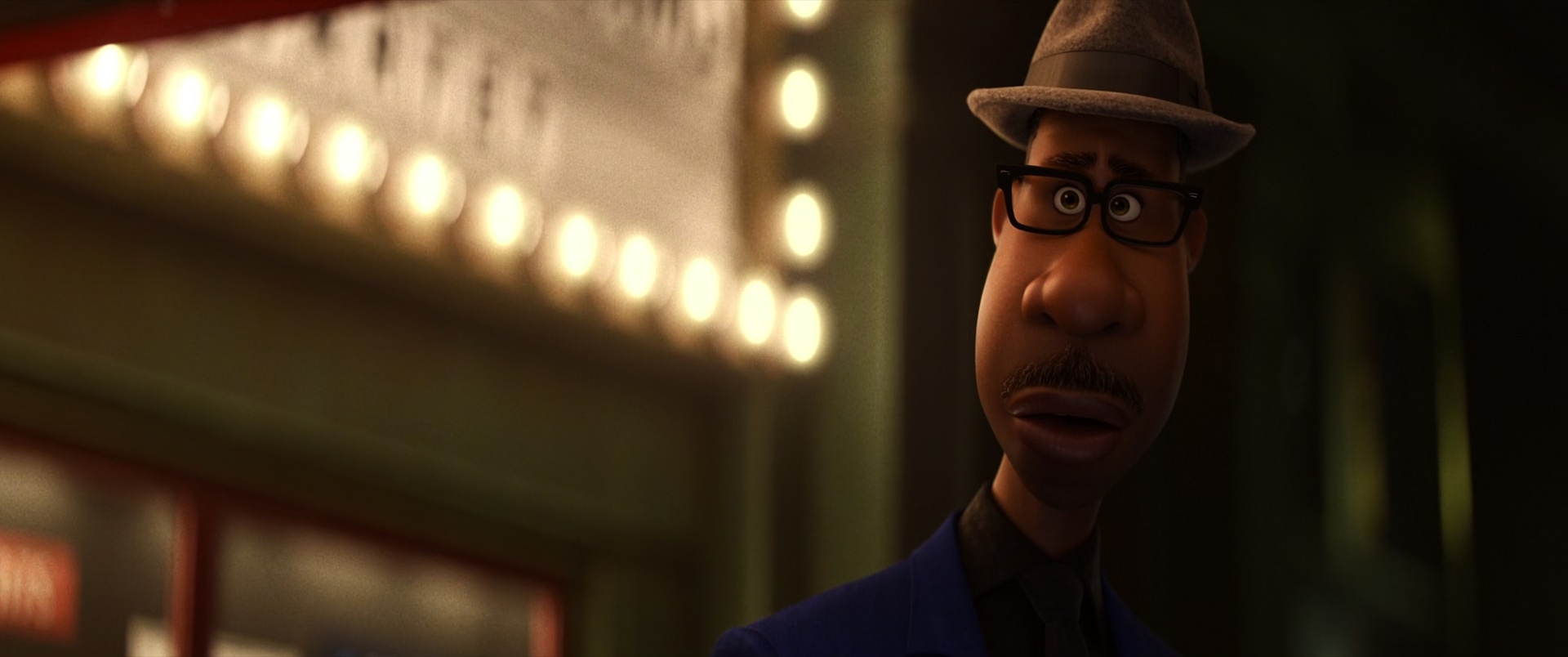
The understandable limits of the PG-rated Pixar cartoon genre aside, in “It’s A Wonderful Life,” we’re given 105 minutes — more than “Soul’s” entire duration — before George Bailey is shown why his life has meaning. We know George. We know his deepest desires, his personality, his family, and his past. As such, when the final 25 minutes of the film make their move, the payoff is entirely earned.
Similarly, in “Our Town,” 70 minutes (a full two acts of the play) is devoted to building the character of Emily Webb. Thus, when Emily is tragically taken from the audience, Emily’s subsequent life-affirming monologue at the close of the story is a powerful payoff to the tapestry woven by playwright Thornton Wilder.
While it’s admirable that “Soul” attempts to tackle multiple massive philosophical and religious questions, cramming it all into 100 minutes may have been too tall a task even in the talented hands of Pete Docter and Pixar.
All the while breezily providing the barest of expository tours of the world of “Soul,” the viewer is also supposed to be deeply invested in the life and purpose of a man they barely know. It’s a big ask of adults, let alone children, many of whom will fall asleep or become bored during the film’s opening 20 minutes, if not before then.
Making Hard Choices
If anything, “Soul” is aware it will be a hard sell for the same youngsters who enjoyed “Finding Dory” or even the more mature “Inside Out.” In an early scene in which Joe loses himself in a deep philosophical tangent in front of his band class, only to be greeted with blank stares, he appeals to his more gifted student, a trombone player named Connie. “Connie knows what I mean, right, Connie?” Joe implores. “I’m 12,” is Connie’s blunt, deadpan response — a sentiment likely expressed by many viewers her age and younger.
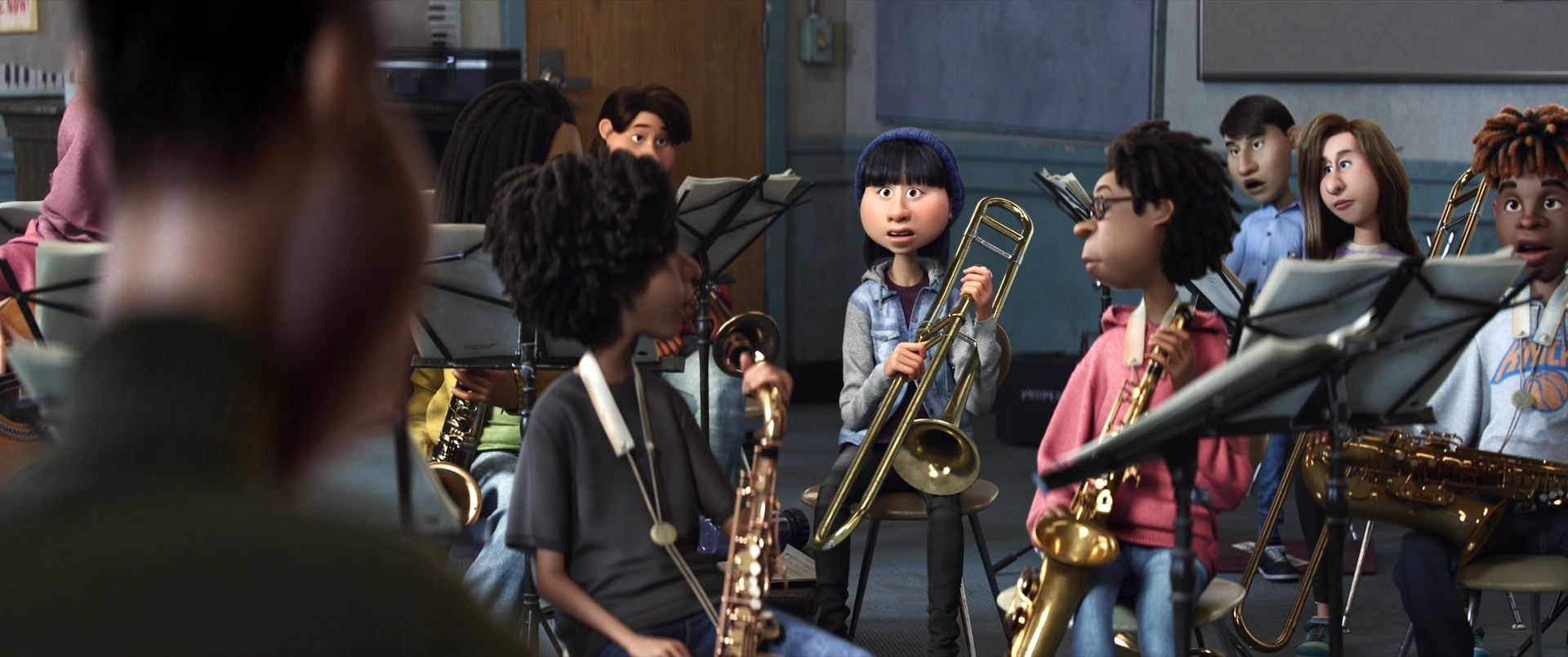
(Skip three paragraphs to avoid spoilers)
As abruptly as the film crashes into new sequences in its opening scenes, the final moments of “Soul” take another hairpin turn.
Impressively, the film does manage to show how Joe starts to realize his gifts as a teacher and his positive influence on his students. Yet, after laying out all the pieces in place to have Joe carry on his teaching talents to remain in the “Great Before” as a “mentor,” he’s given a last-minute second chance at life, and his soul returns to his body on Earth.
It’s akin to the film version of “Our Town,” where Emily doesn’t die in childbirth, but lives, imbued with a sense of resolve and an understanding of how better to slow down and live every moment. It’s happy, but lacks the lingering gut-punch an audience member receives after watching the stage version of the play with the more somber ending: Emily didn’t get a chance to savor every moment; I better make sure I do while I still have the time. It’s hard not to think “Soul” wouldn’t have benefitted in following that direction instead.
(Spoilers end)
To be sure, not all of the script or plot ideas falter. Continuing a recent trend Pixar has been following lately, there’s no clear, traditional “villain” in “Soul.”
Terry, the cosmic accountant, isn’t a villain, he’s just doing his job. Nor is a villain to be found in the character of Joe’s mother, who’s not entirely wrong in her cautious advice for her son, a middle-aged man who’s unmarried and without a permanent job or health insurance.
Despite her acknowledgment and respect for Joe’s love of jazz, she clearly, and unselfishly, wants what’s best for him. Her realism offers valuable balance to Joe’s more heart-strong impulses, and a blend of the two would, quite honestly, be in his interest. “Soul” deserves credit for not shying away from the fact that life is complicated, filled with difficult decisions, and riddled with trade-offs.
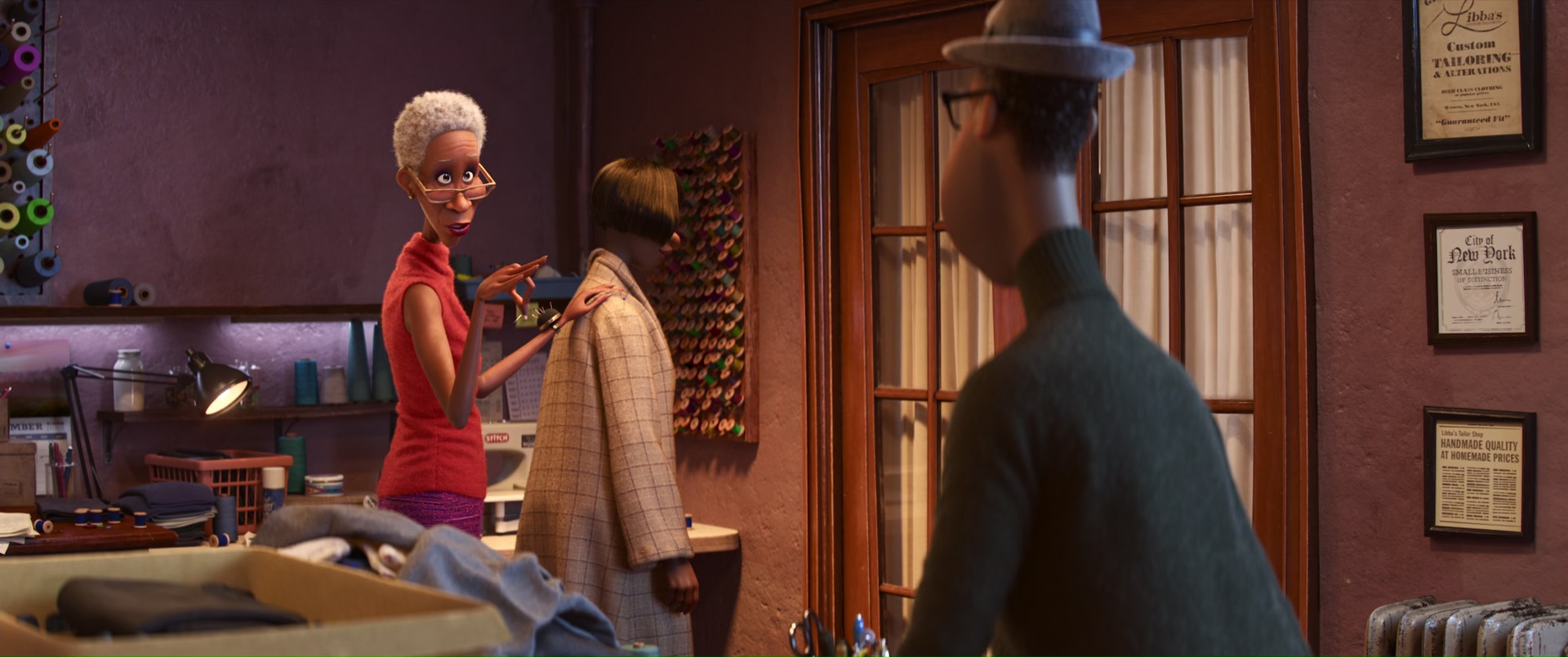
Indeed, a case can be made that Joe is both the hero and the villain — the protagonist and the antagonist. It’s Joe who’s the one preventing himself from not fully appreciating life. His passion and preoccupation with jazz prevent him from understanding what gives life meaning. He’s the one getting in his own way — until, that is, spending just a few hours on Earth with 22 opens his eyes to what he’s been missing.
‘Regular Old Living’
Ultimately, the message of “Soul,” although buried in between a number of somewhat conflicting ideas, is that while there’s nothing wrong with pursuing an ultimate life goal, the journey is, as the saying goes, better than the destination. Happiness and fulfillment can be found in the mundane, the ordinary, and the seemingly meaningless little things.
Returning once more to “Our Town,” Emily’s discovery is nearly identical to that made by Joe at the film’s conclusion. Emily had the newfound joy and appreciation for clocks ticking, “Mama’s sunflowers,” food, coffee, new-ironed dresses, and hot baths; for Joe, it’s feeling water touch his toes on the beach, the taste of a good piece of pecan pie, his Mom’s careful sewing, and playing piano for his father.
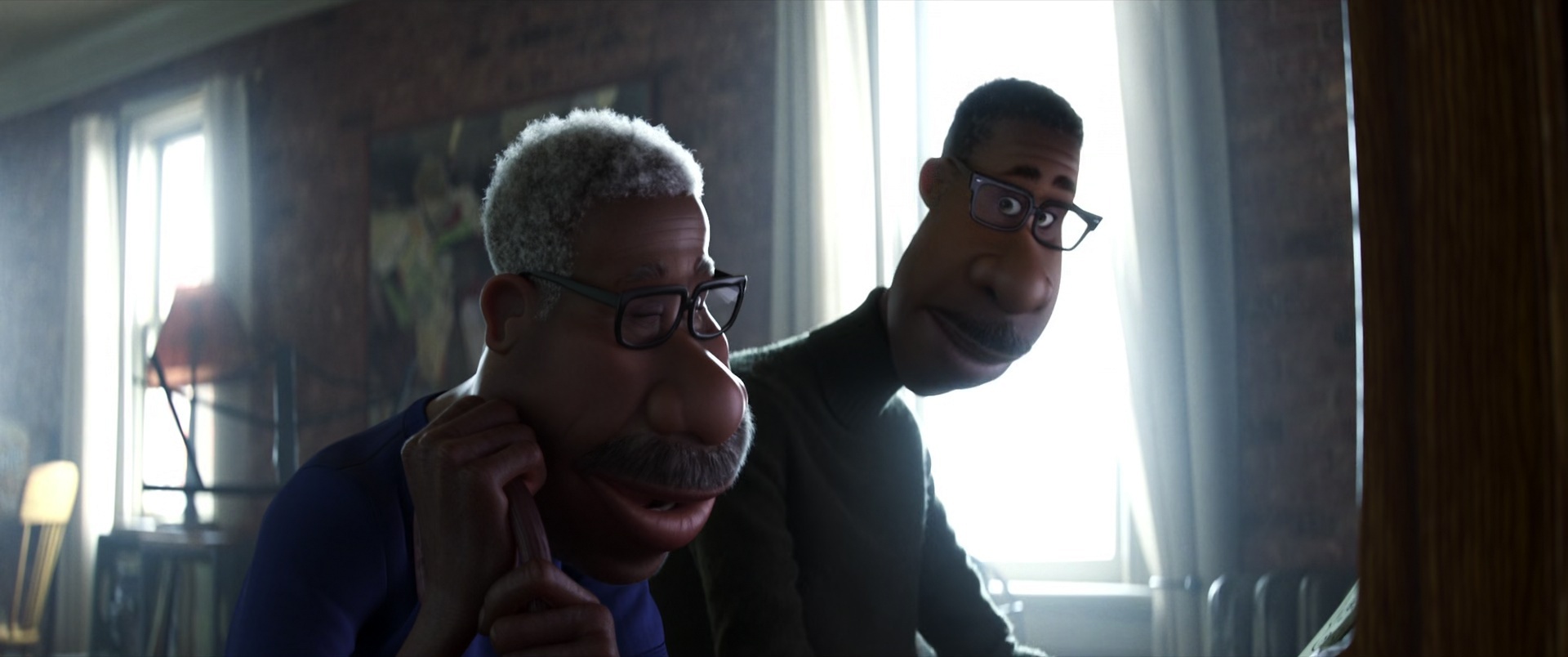
The scene when Joe finally gets it ranks with some of the most moving sequences Pixar has animated, and is so well done it compensates for the shortcomings of the film as a whole. The joy of life isn’t in one singular grand achievement of “making it,” but — as Joe puts it — in “regular old living.”









